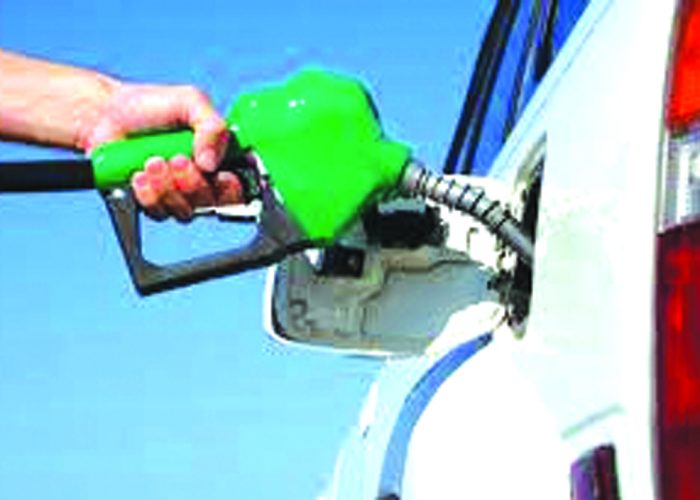


GOVERNMENT has acted on high fuel prices in what is likely to come as a major relief to the economy which has battled high prices at a time when there is an acute scarcity of cash. The Financial Gazette can reveal that the Zimbabwe Energy Regulating Authority (ZERA), a government agency with regulatory oversight over the fuel industry, on Friday issued a directive to all fuel firms for a drastic reduction in freight on board (FOB) prices at the port of Beira, which it said should be pegged at US$0,49 per litre for diesel and US$0,45 per litre for petrol.
The Financial Gazette can reveal that the Zimbabwe Energy Regulating Authority (ZERA), a government agency with regulatory oversight over the fuel industry, on Friday issued a directive to all fuel firms for a drastic reduction in freight on board (FOB) prices at the port of Beira, which it said should be pegged at US$0,49 per litre for diesel and US$0,45 per litre for petrol.
FOB prices at the port of Beira were hovering at US$0,57 per litre for diesel and US$0,52 per litre for petrol, a drastic fall from June FOB prices of US$0,88 per litre for diesel and US$0,86 per litre for petrol.
The latest FOB prices at the port of Beira has consequently resulted in the pump price of petrol retailing at US$1,40 per litre and diesel at US$1,25 per litre.
This contrasts with prices of US$144 for petrol and US$1,32 per litre for diesel that were ruling before the Friday directive.
The Financial Gazette understands that fuel companies were given 24 hours to comply with the new directive.
Oil firms had been conniving to keep retail fuel prices high on the local market, a move that undermined economic revival.
A survey by the Financial Gazette this week showed that all players in the petroleum sector had complied with the new directive.
ZERA chief executive officer, Gloria Magombo, could not be reached for comment on the issue as she was said to be in South Africa attending an Africa Energy Indaba.
But acting chief executive officer, Misheck Siyakatshana, confirmed ZERA had reined oil companies in and forced them to reduce prices.
“Yes it’s true, we followed them up and gave them compliance orders to say price should be US$1,40 per litre for petrol and US$1,25 per litre for diesel,” said Skittishness.
He added: “This is a Ministry (of Energy and Power Development) directive and, as ZERA, we are only the implementing agent. We are happy because oil companies are all complying with the directive.”
Investigations by the Financial Gazette last week established that at least four global oil players had established significant presence on the domestic market and were colluding to keep prices high despite global oil prices weakening.
The four global players have direct control or influence over at least 350 retail sites across the country.
This had allowed them to dictate prices and undermine competition.
Zimbabwe has about 30 licensed fuel importers and about 400 forecourt retailers. This implies that the four players control just over 88 percent of the market.
This collusion by the big fuel movers had enabled them to exploit the market unfairly to achieve super profits at the expense of the consumers.
Government liberalised the fuel sector in 2008, allowing individuals and private companies with free funds to source petrol and diesel offshore for sale on the local market.
Although initially the market was dominated by smaller players who thrived under the chaotic and often corrupt conditions, the four global players are said to have later taken over control of the sector through acquisitions.
While neighbouring countries such as South Africa, Zambia and Namibia had significantly cut fuel prices in line with falling international prices, this has not been the case in Zimbabwe, which imports all its petroleum products, as local fuel traders maintained punitive fuel prices despite an almost 50 percent slump in international prices since June last year.
Comparatively, petrol and diesel are priced at US$0,96 per litre and US$0,90 per litre respectively in South Africa, while in Namibia, petrol and diesel retail at US$0,96 per litre and US$0,92 per litre respectively and at US$1,18 per litre for petrol and US$1,02 per litre for diesel in Zambia.
Government had initially given a directive that petroleum firms slash prices to a maximum allowable of US$1,20 per litre for diesel and US$1,32 per litre for petrol before becoming silent after its surprise hike of duty on fuel by between 28 percent and 33 percent.
newsdesk@fingaz.co.zw